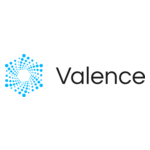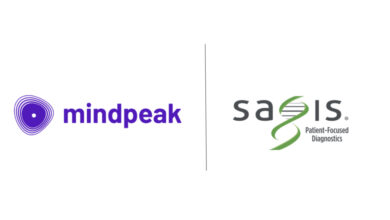Valence Discovery Announces $8.5 Million in Seed Funding to Scale AI-Based Generative Chemistry Engine and Collaborations with Leading Discovery Organizations

- Valence’s AI-based generative chemistry engine designs novel chemical matter optimized for complex property profiles against high-value disease targets even in the absence of experimental data
- Valence’s engine builds upon its founding team’s pioneering work in few-shot learning for drug design, including world-class research that is regularly featured at industry-leading AI conferences such as NeurIPS, ICLR, and ICML
- Valence is scaling its team and engine to support significant partnering demand from industry-leading discovery organizations following recent collaborations with Charles River Laboratories, Servier, and Repare Therapeutics
MONTREAL & CAMBRIDGE, Mass.–(BUSINESS WIRE)–#AI—Valence Discovery (“Valence”), a leader in AI-first design of novel chemistry against previously intractable biology, announced today that it has closed an oversubscribed US$7 million seed financing. The financing, which was co-led by Fifty Years and Air Street Capital, with participation from Amplitude Ventures, Phoenix Venture Partners, and Abcam founder and former CEO, Jonathan Milner, adds to US$1.5 million raised previously, bringing Valence’s total seed funding to US$8.5 million. The new funds will support expanding Valence’s AI-based generative chemistry engine, scaling its partnerships with world-class discovery organizations, further building a leading team of interdisciplinary scientists, and advancing internal drug discovery efforts.
“We are incredibly excited to welcome our new investors, who bring significant expertise in deep tech, biotech, and AI, to Valence’s journey,” said Daniel Cohen, CEO and co-founder at Valence Discovery. “While tremendous progress has been made in AI-first drug discovery in recent years, the field still suffers from a lack of experimental data for the vast majority of high-value disease targets and optimization objectives, rendering data-hungry deep learning approaches of little value. We have built Valence’s chemistry engine to explicitly address this problem, allowing us to rapidly design novel chemical matter against previously intractable biological targets where data may be too small or sparse for traditional deep learning methods.”
Valence has made significant commercial and R&D progress in recent years. Building on research done by the company’s founding team at Mila, the world’s largest deep learning research institute, Valence has developed proprietary AI technologies for low/no data drug design. This includes best-in-class techniques for few-shot learning, graph-based molecular representation learning, structure and ligand-based de novo design, and chemical reaction prediction that have been regularly featured in top journals and conferences such as NeurIPS, ICML, and ICLR. Valence has integrated these techniques into a chemistry engine capable of rapid end-to-end design of novel chemical matter optimized for complex property profiles against challenging disease targets. Valence is now actively deploying its engine across multiple target classes and indications through drug design collaborations with leading biotech and pharmaceutical companies, CROs, and academic centers, including Charles River Laboratories, Repare Therapeutics, and Servier.
“We have been paying close attention to AI-first drug design for several years now, carefully studying the research as it’s published and reviewing a large number of investment opportunities in the space,” said Nathan Benaich, Ph.D., General Partner at Air Street Capital and co-author of the State of AI Report. “Valence has already established itself as a next generation leader in the AI-first retooling of drug discovery—arguably one of the largest opportunities in the industry. The company approaches drug design with technical ingenuity and operational pragmatism in a way that is clearly resonating with category-leading pharma and biotech collaborators.”
Valence will be expanding its team across multiple functions, including medicinal and computational chemistry, biology, machine learning, and software engineering to support the further development of its generative chemistry engine to better accommodate emerging modalities such as degraders, molecular glues, and protein-protein interactions.
“Rather than trying to adapt drug discovery to meet the constraints of deep learning, Valence is adapting deep learning to the constraints of drug discovery,” said Seth Bannon, Founding Partner at Fifty Years. “By viewing drug discovery as a ‘low data’ problem and not a ‘big data’ problem, Valence is creating deep learning systems that enable them to design vastly better drug candidates against some of the pharmaceutical industry’s most challenging and high-value targets – even in the absence of existing experimental data – unlocking new therapeutic options for previously intractable diseases.”
About Valence Discovery
Valence is building the world’s most powerful chemistry engine. The company has pioneered the application of few-shot learning in drug design, along with the development of best-in-class AI methods for molecular representation, structure and ligand-based de novo design, and multiparameter optimization, enabling the design of novel chemistry against previously intractable biology. Valence’s AI-based generative chemistry engine has been extensively validated and is being used to identify and design drug candidates in collaboration with industry-leading partners. Valence was founded in 2018, is advised by deep learning pioneer Dr. Yoshua Bengio, and is proudly headquartered in Montreal at Mila, the world’s largest deep learning research institute, with an office in Cambridge, Mass. To learn how Valence can accelerate your drug discovery efforts, please visit www.valencediscovery.com.
Contacts
Company Contact: Therence Bois, Chief Operating Officer, Valence Discovery, [email protected]
Media Contact: Jessica Yingling, Ph.D., Little Dog Communications, Inc., [email protected], +1.858.344.8091



